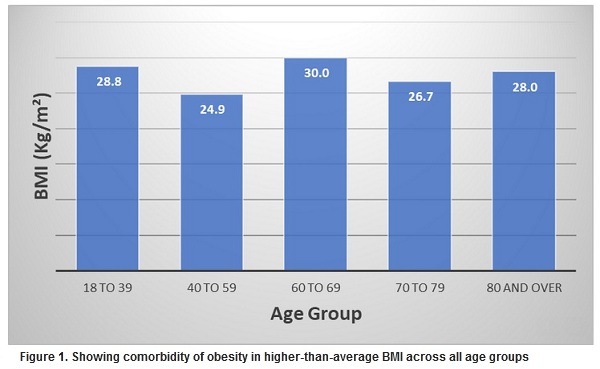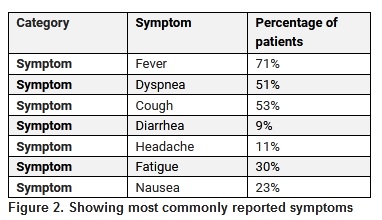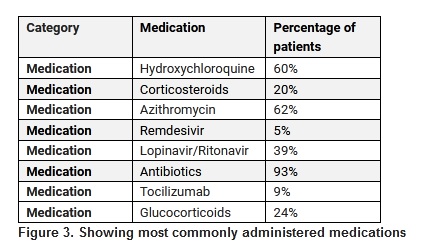Virtual clinical development specialist, Phesi Inc., has today released findings from a significant analysis of COVID-19 patient profiles; based on data from 166,239 COVID-19 patients, from 523 cohorts/trial arms. The data includes patients from 56 countries, including the USA, Italy, the UK, France, Brazil, China and Spain, collected over the from January 2020 to April 2021. The analysis finds that obesity poses the highest risk factor for poorer outcomes from COVID-19 for those under 40 (Fig.1.). However, while other commonly discussed comorbidities including hypertension and diabetes do exist widely in the COVID-19 patient population, the occurrence reflects the underlying disease profile of the age groups and is not a specific risk factor correlating with poorer outcomes from COVID-19.

“Analyzing broad data sets of COVID-19 patients is essential to truly understand the scope and impact of the disease. This statistically significant study shows that we need to look deeper than what may appear to be obvious correlations. While it is true that patients with underlying conditions often have poorer outcomes, the proportion is equal to that in the general population. This illustrates that the real indicator of the severity of COVID-19 is obesity, regardless of age,” commented Dr Gen Li, Founder and President, Phesi.

The analysis also confirms the most frequently presented symptoms for COVID-19 are fever, dyspnea (shortness of breath), and a cough. Significantly, almost a quarter (23%) of patients also present with nausea, which is less commonly discussed as a symptom (Fig 2.). The data show there are a wide range of medications currently being used to treat COVID-19, as research into treatments continues. However, no treatment has proven to be a completely effective therapeutic. Medications used include antibiotics (93%), remdesivir (5%), hydroxychloroquine (60%), corticosteroids (20%), azithromycin (62%), lopinavir/ritonavir (39%), and glucocorticoids (24%) (Fig.3).

“This large data set yields useful information for public health campaigns and ongoing planning for COVID-19 clinical development programs. COVID-19 is likely to be with us for some time, and we are going to see similar coronaviruses emerge in the future. So, comprehensive data sets and analyses such as this are important for governments and health officials in future planning – to help build targeted public health campaigns that are preventative, including those around obesity,” commented Dr Paul Chew, Chief Medical Officer at Phesi.

















![Sirio Launches Global Research Institute for Longevity Studies [SIA]](https://www.worldpharmatoday.com/wp-content/uploads/2019/09/Sirio-218x150.jpg)


